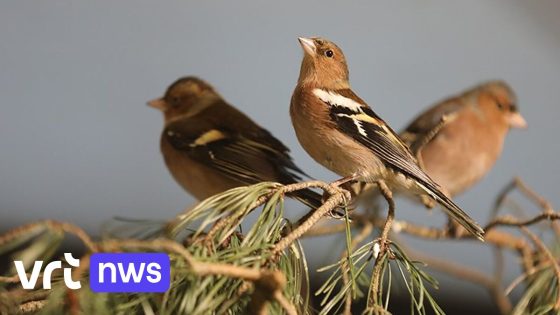On February 28, 2025, authorities seized over 400 songbirds in South Limburg, highlighting a troubling trend in illegal bird trapping. Most of these birds were male finches, which are often trained for a controversial practice known as “vinkenzetten.” Why are these beautiful creatures being captured and trained? The answer lies in their unique songs.
- Majority of captured birds were males.
- "Vinkenzetten" involves male finch singing contests.
- Flemish finches have a unique ending song.
- Illegal capture of wild finches reported.
- Waalse finches require training to mimic songs.
The Controversial Practice of Vinkenzetten: What You Need to Know
Why would anyone capture wild finches? The practice of vinkenzetten involves training male finches to sing specific melodies within a set time frame. This tradition is particularly popular in Flanders but raises ethical questions about animal welfare.
The Impact of Illegal Bird Trapping on Wildlife Conservation
The recent seizure underscores the risks associated with illegal bird trapping. Many of the captured finches were believed to have been taken from the wild in Wallonia, where their songs differ from those bred in captivity. This highlights a concerning trend: the demand for specific song patterns drives individuals to capture wild birds illegally.
The Process Behind Training Wild Finches for Vinkenzetten
Training these birds requires an intricate process that involves isolating them and playing recordings of captive-bred finch songs. This method aims to teach them how to mimic the desired tunes effectively.
- Caught birds are kept in dark wooden boxes for isolation.
- Singing recordings from Flemish finches are played continuously nearby.
- This technique helps Waalse finches learn new songs quickly.
- Such practices raise significant ethical concerns regarding animal treatment.
The Legal Implications Surrounding Vinkenzetten Practices
The legality of vinkenzetten varies across regions, but it often falls into gray areas regarding wildlife protection laws. In many cases, using wild-caught birds is prohibited due to conservation efforts aimed at protecting native species. As awareness grows about these issues, more people question whether such traditions should continue or be banned entirely.
How Can We Protect Songbirds from Illegal Practices?
Protecting songbirds like finches requires collective action from communities and policymakers alike. Education plays a vital role; raising awareness about the importance of wildlife conservation can discourage illegal activities related to bird trapping. Additionally, stricter enforcement of existing laws may help deter potential offenders.
In conclusion, understanding the implications behind vinkenzetten not only sheds light on cultural practices but also emphasizes our responsibility toward wildlife conservation efforts globally.

































